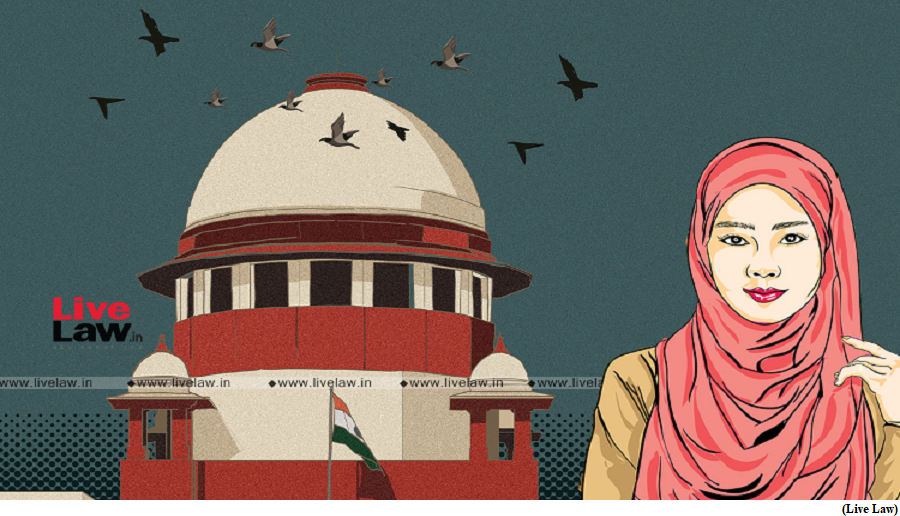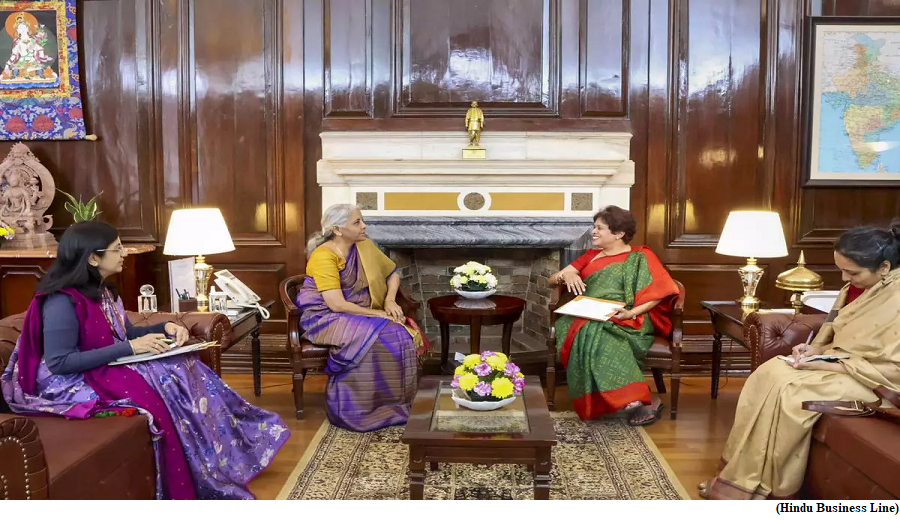On the right to maintenance for divorced Muslim women (GS Paper 2, Social Justice)

Why in news?
- The Supreme Court has decided to examine if a divorced Muslim woman is entitled to a claim of maintenance under Section 125 of the Criminal Procedure Code (CrPC) from her former husband, reigniting the debate on whether secular laws should be given precedence over distinct personal laws.
- On February 19, a Bench comprising Justices B.V. Nagarathna and Augustine George Masih reserved its verdict in the case.
How has the law evolved?
Section 125 of the CrPc:
- The law governing maintenance for destitute wives, children, and parents has been codified under Section 125 of the CrPC.
- It stipulates that if any person “having sufficient means neglects or refuses to maintain” his wife, then a magistrate of the first class may, upon proof of such neglect or refusal, order such a person to make a monthly allowance for the maintenance of his wife at a monthly rate as the magistrate thinks fit.
- The explanation to this provision clarifies that a “wife” includes any woman who has been divorced by, or has obtained a divorce from, her husband and has not remarried.
1986 Act:
- The Muslim Women (Protection of Rights on Divorce) Act, 1986 (1986 Act), is a religion-specific law that provides a procedure for a Muslim woman to claim maintenance during divorce.
- Section 3 of the 1986 Act guarantees the payment of maintenance to a divorced Muslim woman by her former husband only during the period of iddat, a period, usually of three months, which a woman must observe after the death of her husband or a divorce before she can remarry.
- After the completion of the iddat period, a woman can approach a first-class magistrate for maintenance in case she has not remarried and is not in a position to take care of herself financially.
Supreme Court verdict:
- A Constitution Bench of the Supreme Court in the Danial Latifi versus Union Of India (2001) case upheld the constitutional validity of the 1986 Act by extending the right of a Muslim woman to get maintenance till she re-marries. It, however, reduced the period of maintenance to the completion of iddat.
- In 2009, a Division Bench of the Supreme Court reiterated a divorced Muslim woman’s right to claim maintenance under Section 125 of the CrPC as long as she does not remarry.
- It highlighted that such a relief would be extended even after the expiry of the iddat period.
How did the proceedings play out?
- The apex court pointed out that Section 3 of the 1986 Act begins with a non-obstante clause (“notwithstanding anything contained in any other law for the time being in force”), and thus it does not bar an alternative remedy under Section 125 of the CrPC.
- It said that the question of whether the 1986 Act takes away the right under Section 125 of the CrPC was not dealt with in Danial Latifi and thus there is a requirement of an authoritative pronouncement in this regard.
- Dismissing the petitioner’s argument that the provisions of the 1986 Act reflect the Parliament’s intent to debar Muslim women from seeking relief under Section 125 of the CrPC, the court asserted that if that were the case then the legislators would have explicitly given an overriding effect to the 1986 Act.
- The Act does not say no petition under Section 125 shall be filed by Muslim women.
India, Sri Lanka move forward with talks on trade agreement
(GS Paper 2, International Relation)
Why in news?
- India and Sri Lanka are set to take ongoing discussions on the Economic and Trade Cooperation Agreement (ETCA) forward, with the next two rounds of bilateral talks scheduled in coming months.

Details:
- President of Sri Lanka has emphasised the need for trade pacts to aid the country’s economic recovery. Earlier, Sri Lanka inked a free trade pact with Thailand.
- India, followed by China, are the other two key partners with which Mr. Wickremesinghe is keen to have upgraded agreements, even as Sri Lankans reel under the painful aftermath of a financial meltdown.
- The Sri Lankan government sees the resumption of ETCA negotiations as “a significant step towards strengthening the economic partnership between Sri Lanka and India.”
Progress so far:
- The 13th round of discussions on the proposed ETCA was held in New Delhi for 10 days beginning January 8, 2024.
- Nine sub-committees tasked with looking into various aspects such as goods trade, service trade, rules of the origin and customs procedure and easing the trade held deliberations.
Background:
- India and Sri Lanka first signed a free trade agreement in 1998. While the two sides have since attempted to upgrade it multiple times, the attempts proved unsuccessful.
- The progress in negotiations is significant, as the much-discussed pact was stalled in the past, owing to stiff opposition from some worker unions and hardline Sinhala-nationalist politicians, who saw the agreement as favouring Indian interests predominantly, while endangering Sri Lankan labour.
- At least 11 rounds of discussions were held between 2016 and 2019, when the Maithripala Sirisena-Ranil Wickremesinghe administration was in power, but the two sides failed to reach an agreement amid protests in Sri Lanka.



